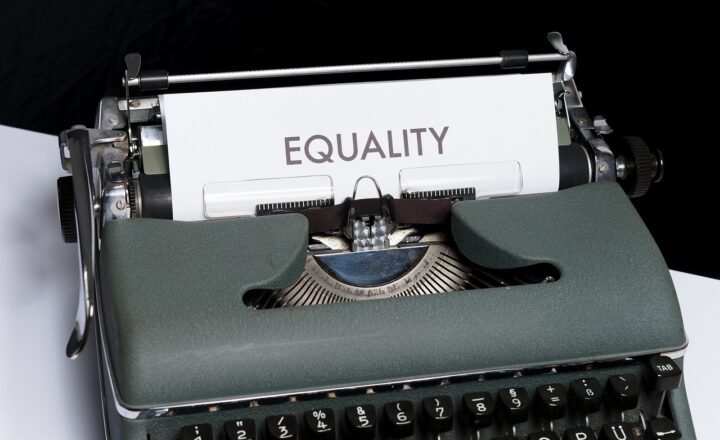The Great Debate: Is History Repeating Itself in Modern Conflicts?
November 19, 2024

The phrase ‘history repeats itself’ suggests a cyclical nature to human conflict, and as we witness ongoing global tensions, it is prudent to examine how the past informs our present. The relevance of historical events in shaping modern conflicts invites scrutiny. Are the strategies, motivations, and consequences echoed in today’s geopolitical landscape echoes of past wars, or do modern conflicts present unique challenges that defy historical precedence? In this article, we will delve deep into this debate, exploring various examples from history to draw parallels with contemporary situations.
1. The Historical Framework of Conflict
History is rife with examples of conflict – some of which bear striking similarities to today’s geopolitical strife. To argue whether history is indeed repeating itself, we must first understand the motivations behind wars and conflicts throughout the ages.
The primary drivers of conflict can often be boiled down to:
- Political Power: Ambitions for territorial expansion, control over resources, and dominance in international politics have led nations into countless wars. A prime example is the Roman Empire’s aggressive expansion in the ancient world, which is echoed today in various territorial disputes around the globe.
- Economic Factors: The desire for resources, wealth, and trade routes has fueled many historic conflicts, from the Crusades to the Opium Wars, much like modern-day struggles over oil and technology resources.
- Nationalism and Ethnic Tensions: The rise of nationalism has often been a precursor to conflict, as observed in World War I; similarly, contemporary ethnic and nationalist movements continue to provoke tensions, as seen in areas like the Balkans and the Middle East.
Understanding these historical drivers sets the stage for analyzing modern conflicts. Can we see these patterns manifesting in current events, or have we learned from our past?
2. Case Studies: Echoes from the Past
Several contemporary conflicts reflect historical precedents:
A. The Syrian Civil War and the Spanish Civil War
The ongoing Syrian Civil War evokes memories of the Spanish Civil War. Both conflicts involve a struggle between competing ideologies (authoritarianism versus democracy) and have drawn in foreign powers on different sides.
In the Spanish Civil War, international brigades entered to support the Republicans, while foreign powers have also intervened in Syria, showcasing the perils of proxy wars and ideological entrenchment that replay stories from the 20th century.
B. The Crimean Conflict and Pre-World War I Tensions
The annexation of Crimea by Russia in 2014 has drawn parallels to the events leading up to World War I, driven by similar tensions between great powers and national ambitions. Just as power struggles in the Balkans contributed to the outbreak of WWI, the situation in Ukraine invokes questions about sovereignty, allegiance, and the balance of power in Europe today.
C. The War on Terror and the Crusades
The ongoing War on Terror, characterized by the US and its allies fighting against extremist regimes, bears resemblance to the historical Crusades, where European powers engaged in a military campaign against Islamic territories. In both cases, we observe a clash of civilizations narrative, raising broader questions of religious and cultural identity.
3. Competing Perspectives: Is History Really Repeating Itself?
While some argue that history is indeed repeating itself, others contend that modern conflicts present unique circumstances that mean past events may not serve as direct lessons for the present. Factors to consider include:
- The Role of Technology: Modern technology influences warfare in unprecedented ways. Cyberwarfare and advanced weaponry change the dynamics of engagement, challenging previous strategies based on conventional military tactics.
- Globalization and Interdependence: Today’s world is more interconnected than ever. Economic interdependence can serve as a deterrent against conflict, suggesting that while historical patterns might resurface, the impact of modern diplomacy might lead to different outcomes.
- New Ideologies and Movements: The rise of movements such as environmental activism, social justice, and global citizenship signal shifts in motivation and conflict that echo earlier movements but also diverge substantially from traditional causes of war.
This divergence prompts questions about the validity of using history as a template for understanding today’s conflicts.
4. Learning from the Past: The Importance of Historical Awareness
Despite the arguments for uniqueness in modern conflicts, historical awareness remains a critical tool for decision makers. Understanding previous conflicts can:
- Inform Policy Decisions: Analyzing successful and failed strategies in the past can guide contemporary policymaking. The consequences of appeasement before WWII, for instance, highlight the need for a robust international response to aggression today.
- Enhance Diplomacy: References to historical events can resonate during diplomatic negotiations, fostering mutual understanding or serving as a warning against miscalculation in conflict scenarios.
- Prevent Escalation: By revisiting historical outcomes, leaders may be better positioned to prevent conflicts from escalating into larger-scale wars.
In this sense, while history may not perfectly repeat itself, it carries invaluable lessons that can shape contemporary decision-making.
Conclusion: Are We Doomed to Repeat?
The debate surrounding whether history is repeating itself in modern conflicts is complex, nuanced, and multifaceted. While there are undeniable parallels between historical events and current tensions, the unique factors influencing today’s world cannot be overlooked. Ultimately, history should serve not as a script to guide our actions but as a crucible for critical reflection.
Policymakers, historians, and the public must engage with history thoughtfully, recognizing both the patterns that resurface and the new dynamics that emerge. As we navigate an increasingly complicated geopolitical landscape, our understanding of the past can illuminate pathways to peace—a goal eternally at the forefront of human aspiration, reminding us of the expressions of conflict that have always been part of our shared journey.
In closing, the question may never fully be resolved. Perhaps it is not a matter of whether history repeats itself but rather how we choose to learn from it as we strive for a more stable and peaceful future.








